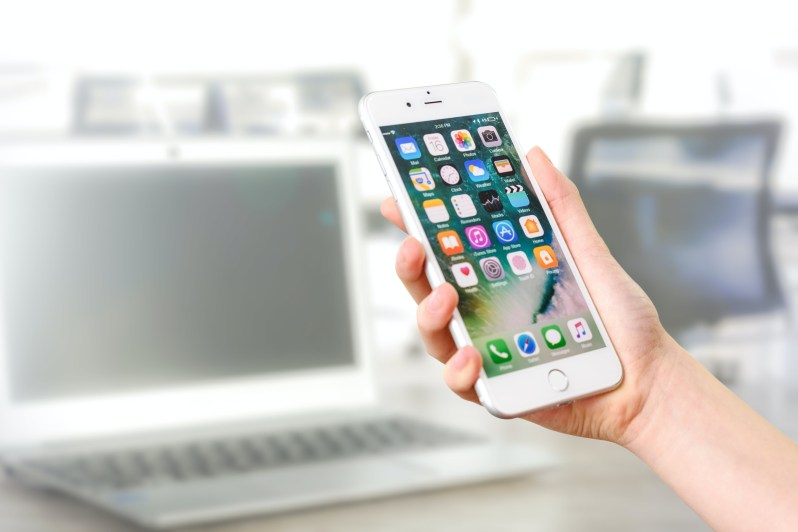
In a world where every bite and movement can be measured, weight loss apps hold an allure that cannot be denied. You’ve seen the ads, the testimonials, and the unbelievable before and after photos. But as you swipe through another set of dazzling transformations, a question lingers in the back of your mind: do you really need a weight loss tracker to reach your goals? This isn’t just about shedding pounds; it’s a quest for a leaner, more vital, healthier you—and the path you choose matters.
Let’s dive into the digital age of fitness and nutrition to see if these high-tech aids can help you lose weight or if they are just another fad promising more than they deliver.

What weight loss apps are available?
In the bustling digital health market, many weight loss apps are vying for your attention. The Lose It! App, MyFitnessPal, Noom, and Weight Watchers are among the heavy hitters in the industry. Each weight loss app offers its own unique spin on the journey to a healthier lifestyle. But with so many choices, the decision can feel as overwhelming as the weight loss journey itself.
Noom
Unlike traditional weight loss platforms, Noom employs a psychological approach, delving into the cognitive and emotional factors that influence your relationship with food. It’s a holistic strategy that goes beyond just a calorie calculator, incorporating cognitive-behavioral therapy principles to help you overcome unhealthy eating patterns.
Noom is not just a diet app; it’s a behavioral change tool, complete with daily lessons, support from trained coaches, and a personalized plan that adjusts to your specific lifestyle and goals. This app doesn’t just aim to slim down your waistline; it strives to rewire your mindset towards food and health for lasting change.
Weight Watchers
This comprehensive digital platform employs a unique points-based system, known as SmartPoints, to help monitor daily food intake. Rather than merely counting calories, the app assigns foods different point values based on their nutritional content, thereby encouraging users to choose nutrient-rich, filling foods with lower points.
MyFitnessPal provides you with an invaluable Body Mass Index tracker, a pivotal tool for those who are striving to stay within a healthy weight range or aiming to reach specific fitness goals. This BMI tracker offers a clear, scientifically backed benchmark for monitoring progress, giving you a precise understanding of where you stand in terms of health metrics.
Lose It! App
Lose It! is a personal nutritionist in your pocket, one that meticulously logs your food intake, whether you’re manually entering your meals or scanning a barcode. Lose It! is like having a dashboard dedicated to the foods you’ve consumed, allowing you to track your calorie consumption throughout the day.
You’re not just another user; you’re an individual with unique goals. With the Lose It app, you set your weight loss targets, and it responds with a tailored daily calorie and macro budget, transforming a universal challenge into a personal journey. As you progress, tracking becomes more than a habit – it becomes a narrative of your success, with each chapter representing a step along the way.
What makes these weight loss apps so special?
The secret sauce of these apps lies in their ability to simplify complex nutritional data. With a weight loss calculator and calorie counter at your fingertips, these apps break down your goals into daily actionable steps. They track your progress, offer feedback, and even provide virtual coaching. The combination of these features can be a powerful motivator. They give you a sense of control and accountability, which can be especially appealing for individuals who thrive on structure and data. But is this digital hand-holding the key to sustainable weight loss, or is it just another digital tool?
These apps can provide you with data that can allow you to visually see the progress you have made. The data they provide can be incredibly useful, but it’s important to remember that it’s not the only factor that determines success. Eating right and getting enough exercise are still essential components of a healthy lifestyle.

Good news, you don’t need a weight loss app to lose weight
Here’s where we take a stand and offer you a breath of fresh air: you don’t need a weight loss app to lose weight. The cornerstone of weight loss is a concept as old as time—a calorie deficit. It’s a simple equation: burn more calories than you consume. You can track your intake and expenditure with pen and paper, an Excel spreadsheet, or even just by being more mindful of your eating habits and activity levels. The weight loss journey is personal and unique to each individual; it doesn’t require sophisticated technology to be successful. What it does require is commitment, determination, and a willingness to embrace change—one step at a time.
In conclusion, while weight loss apps like Noom, WW, and MyFitnessPal can be beneficial tools that offer convenience and structure, they are not a prerequisite for weight loss. The most critical factor is understanding the principles of a calorie deficit and applying that knowledge consistently. Whether you choose to go high-tech or keep it simple, your success hinges on your dedication to a healthier lifestyle. So, as you consider your options, remember that the most effective weight loss plan is the one you can stick to—app or no app.




